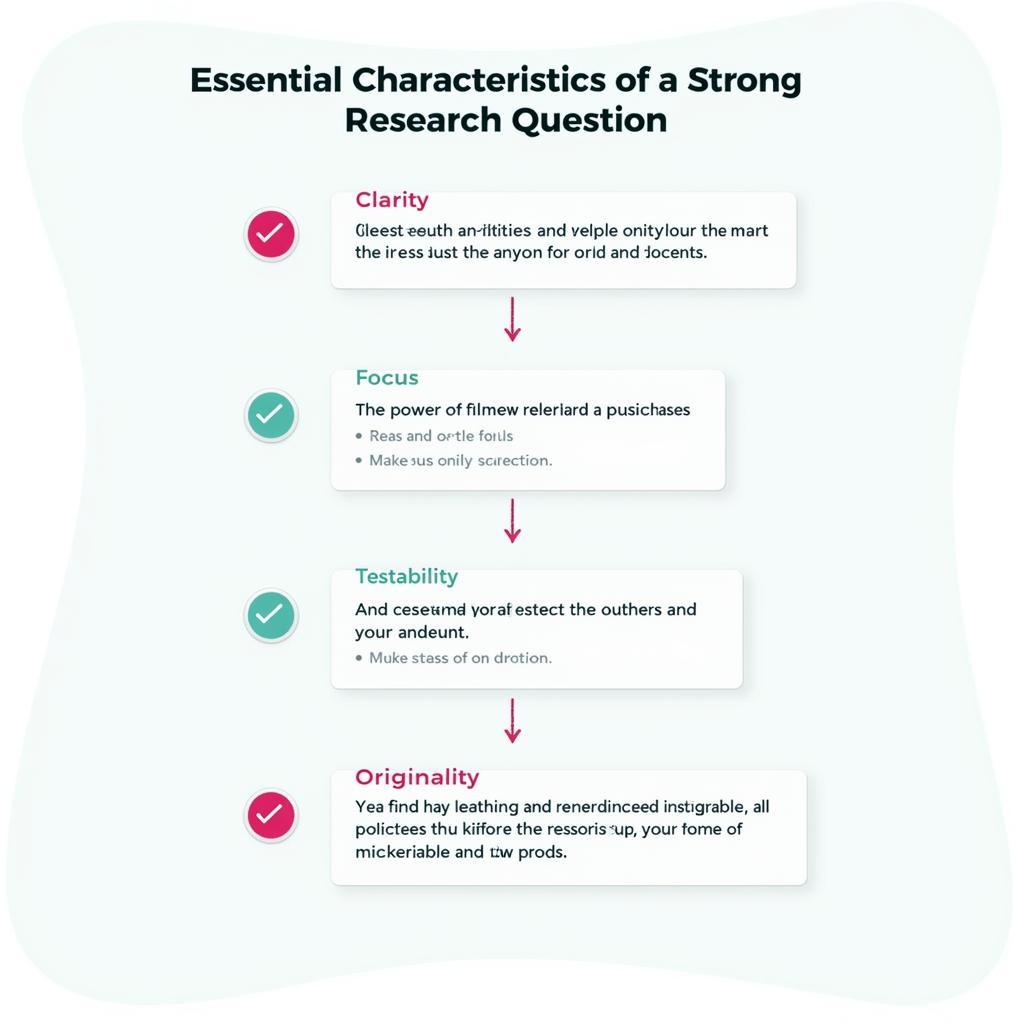The human mind remains one of the most fascinating and complex puzzles known to us. Through Psychology Research Questions, we delve into the mechanisms that drive our thoughts, feelings, and behaviors. This quest for understanding not only sheds light on who we are but also paves the way for interventions and therapies to improve our lives.
Exploring the Vast Landscape of Psychology Research Questions
Psychology research questions span a spectrum as diverse as the human experience itself. From the biological underpinnings of consciousness to the social dynamics of group behavior, the possibilities for inquiry are endless.
Types of Psychology Research Questions
Psychology research questions often fall into categories based on their approach:
- Descriptive: These questions aim to paint a picture of a psychological phenomenon. For example, “What are the common coping mechanisms used by individuals with anxiety?”
- Correlational: These questions explore the relationship between two or more variables. For instance, “Is there a link between social media use and self-esteem in teenagers?”
- Experimental: These questions involve manipulating variables to establish cause-and-effect relationships. An example might be, “Does exposure to violent video games increase aggression in young adults?”
Factors Influencing Research Questions
The selection of psychology research questions is influenced by a confluence of factors:
- Current societal trends and issues: Research often focuses on understanding and addressing prevalent societal concerns, such as the impact of technology on mental health or the rise of cyberbullying.
- Funding opportunities: The availability of grants and funding influences the areas researchers can explore.
- Ethical considerations: Ethical guidelines regarding informed consent, confidentiality, and potential risks to participants play a crucial role in shaping research questions and methodologies.
Crafting Effective Psychology Research Questions
 Key elements of a well-defined psychology research question
Key elements of a well-defined psychology research question
Formulating a strong research question is the foundation of any successful research endeavor. Here are key considerations:
- Clarity and focus: The question should be unambiguous, concise, and specific in its scope.
- Testability: The question must be answerable through empirical observation or experimentation.
- Originality: While replicating existing studies is valuable, a good research question often explores new territory or offers a fresh perspective.
- Relevance: The question should contribute meaningfully to the existing body of knowledge in psychology.
Examples of Compelling Psychology Research Questions
To illustrate the diversity and depth of the field, here are examples of psychology research questions:
- Cognitive Psychology Research Questions: How does sleep deprivation affect decision-making abilities?
- Developmental Psychology Research Questions: What are the long-term effects of early childhood attachment styles on adult relationships?
- Social Psychology Research Questions: How do social norms influence conformity and obedience to authority?
- Clinical Psychology Research Questions: What are the most effective therapeutic approaches for treating post-traumatic stress disorder?
- Examples of Psychology Research Questions: Can mindfulness meditation reduce symptoms of anxiety and depression?
Conclusion: The Enduring Quest to Understand the Human Mind
The pursuit of answers to psychology research questions is a journey without a final destination. As we uncover new layers of the human mind, more questions emerge, propelling us forward in our quest for understanding. This ongoing exploration not only enhances our knowledge but also empowers us to develop interventions, therapies, and strategies to improve mental health and well-being. If you’re looking to delve deeper into specific areas of psychology research, explore these related resources:
- Descriptive research psychology
- Cognitive psychology research questions
- Examples of psychology research questions
- Psychology research topics questions
- Research questions in psychology examples
For personalized support and guidance on your journey of understanding the mind, contact us.
Phone: 0904826292, Email: research@gmail.com or visit us at No. 31, Alley 142/7, P. Phú Viên, Bồ Đề, Long Biên, Hà Nội, Việt Nam. Our dedicated team is available 24/7 to assist you.